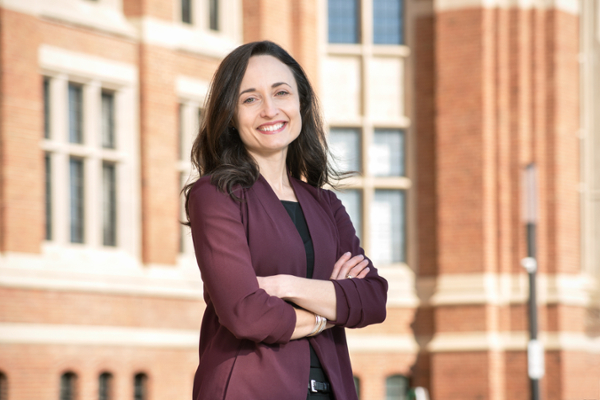
U of R-led research aims to strengthen public trust for regenerative medicine
Regrowing human skin and replacing damaged cells, tissues, and organs are techniques that no longer belong in the realm of science fiction. They are life-saving procedures known as regenerative medicine. And while the science has been around for decades, it’s advancing quickly, which is creating considerable controversy.
REGINA – Regrowing human skin and replacing damaged cells, tissues, and organs are techniques that no longer belong in the realm of science fiction. They are life-saving procedures known as regenerative medicine (RM). And while the science has been around for decades, it’s advancing quickly, which is creating considerable controversy.
In order to help Canadians better understand the science, a new project being led by University of Regina associate professor Amy Zarzeczny, has received $704,985 in support from the Stem Cell Network (SCN).
“Regenerative medicine offers the potential for life-changing improvements to treatment options for many Canadians suffering from heart disease, muscle and tendon injuries, cornea damage, and more,” says Zarzeczny, associate professor in the Johnson Shoyama Graduate School of Public Policy. “We want to encourage strong science and successful translation of RM therapies from research to clinical use. Doing so requires public trust and support.”
The research project aims to inform inclusive policies and oversight mechanisms to strengthen public trust in the clinical use of regenerative medicine — such as the use of stem cells, tissue engineering, and artificial organs. This funding is part of a $19.5M investment in regenerative medicine research, the largest in SCN’s 20-year history and made possible through increased funding by the Government of Canada in 2021.
“As our nation strives to build a durable and modern economy that provides continued prosperity and better health for all Canadians, SCN is honoured to play its part,” said Cate Murray, SCN President & CEO. “Today’s funding will ensure next-generation life science leaders get the hands-on training and experience needed to ensure Canada remains internationally competitive. SCN funding will also enable growth of Canada’s biomanufacturing sector and fuel clinical trials that will allow eligible patients access to leading-edge treatments that would otherwise be out of reach.”
Overall SCN’s funding will support 32 projects and clinical trials involving more than 400 researchers, clinicians, and trainees from across Canada.
Zarzeczny strongly believes that appropriate regulation and strong governance frameworks are needed to ensure regenerative medicine treatments are safe and effective, and to prevent premature and unethical uses.
“Our ultimate goal is to support responsible clinical translation of RM in Canada. To do so, we need ethical and globally relevant regulatory and governance tools, institutions, and processes that support the development of safe, effective, and accessible treatments,” said Zarzeczny.
To accomplish this, Zarzeczny and her team, which includes Canada Research Chair in Health Law and Policy professor Timothy Caulfield and Dr. Ubaka Ogbogu from the University of Alberta, and a large number of collaborators spanning several countries, will study important areas of RM’s general societal approval and acceptance. This includes current regulations surrounding new treatments, the conditions under which therapies are provided to patients, and the types of misinformation being circulated in news, social media, and other contexts. This research will help inform their recommendations for policy and regulatory reform, and the development of training for highly qualified personnel.
“With its potential for life-changing improvements to treatment options for many conditions, it’s critical that Canadians have a deeper understanding of what regenerative medicine is, and, perhaps just as importantly, what it is not,” said Kathy McNutt, vice-president (research) at the University of Regina. “This is a critical time for Zarzeczny and her to team to explore how best to provide us with this knowledge that may well impact our health, and the health of those we love.”
The Stem Cell Network is a national not-for-profit that supports three main objectives: stem cell and regenerative medicine research; training the next generation of highly qualified personnel; and supporting the knowledge mobilization of research outputs. For more information, visit https://stemcellnetwork.ca/.
-30-
For more information, contact:
Everett Dorma, Public Affairs Strategist
University of Regina
306-337-8451
everett.dorma@uregina.ca
Erica Schindel, Communications and Marketing Manager
Johnson Shoyama Graduate School of Public Policy
University of Saskatchewan
306-966-2663
erica.schindel@usask.ca

